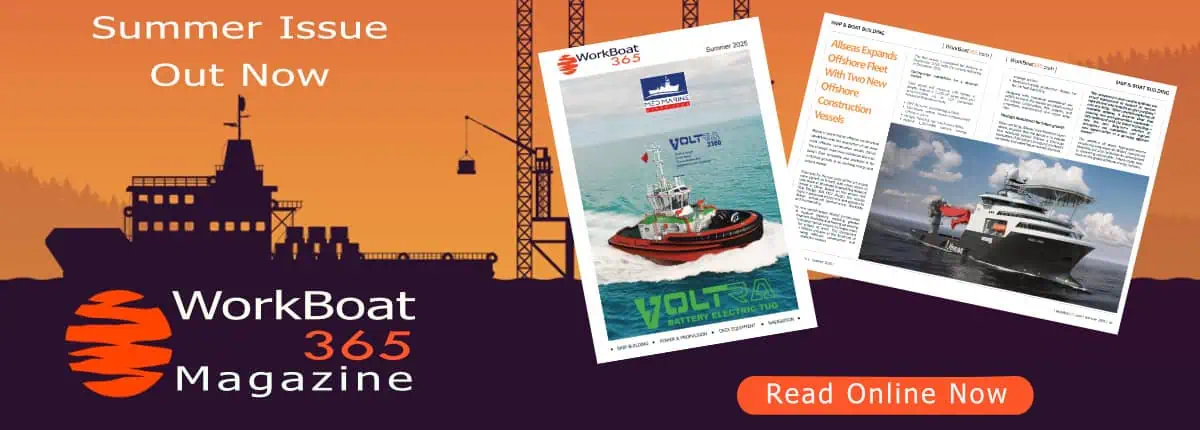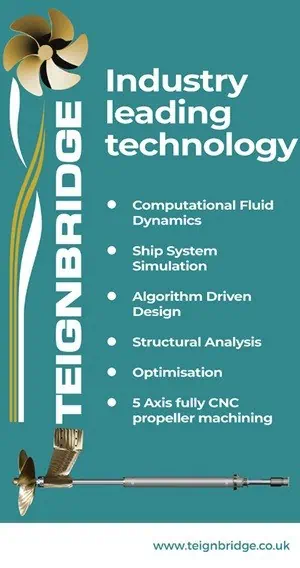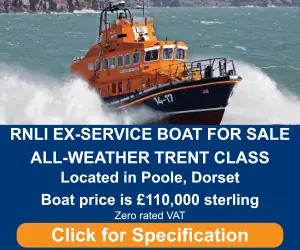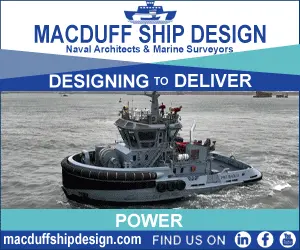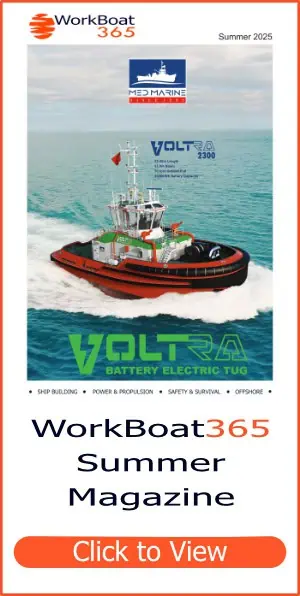Bureau Veritas (BV), a world leader in testing, inspection, and certification (TIC), has awarded “Trade Wings 2,500”, an innovative 2,500 TEU Container Vessel from VPLPDesign (France), Alwena Shipping (France), SDARI (China) and AYRO (France) an Approval in Principle. With an overall length of 197m and a breadth of 32m, the vessel offers a deadweight of 32 500 m tons.
It fosters the combination of a wind-assisted propulsion with six Oceanwings® with an LNG-electric propulsion with pods. The wingsails are installed on a vertical sliding mechanism to retract them partially while the vessel is in port, thus minimizing the impact on cargo operations. The LNG storage tank is based on GTT’ Mark III containment system and the LNG power plant is designed with pure gas 4-strokes gensets only. This architecture is a flexible platform offering possible upgrade to decarbonated fuels in the future such as Ammonia or Hydrogen.
Suitable to short sea shipping operations or feedering in Europe, Central America, Caribbean Islands and China, the Trade Wings 2,500 can also operate on transatlantic trades. The design minimizes time in port operations, as maneuverability is increased with the Pods, and the hatch coverless design further speeds up cargo operations.
ALEXGREGG-SMITH, Senior Vice-President, Bureau Veritas North Asia
Wind-assisted propulsion is a high-potential solution that can contribute to the long-term decarbonization of the marine industry. We have just released new wind propulsion system rules – and this innovative design, approved in principle by BV, including a sliding mechanism, demonstrates the feasibility of wind-assisted propulsion on board container ships with deck space limitations. Benefitting from a coverless hatch and LNG electric pod propulsion, the design provides both operational flexibility, improved efficiency and reduced carbon emissions, complying with, or exceeding, regulatory requirements. Bureau Veritas continues to address the challenges of the energy transition by providing solutions to the safety, risk and performance requirements for innovation in future fuels and propulsion systems.
On a typical transatlantic route of 4,000 Nm, the Trade Wings 2,500 will save on average 35% CO2-equivalent emissions compared to a conventional design, with a 2-stroke engine, single shaft and without wingsails, at the same speed. Out of these 35% savings, the Oceanwings® accounts to 57%, the optimized LNG thermal propulsion delivering the remaining 43% savings.
This co-work to design the Trade Wings 2,500 sets the pathway for what could be the low emissions container vessels of the near future.
After reviewing the key drawings, on the 12th of May 2021, Bureau Veritas Marine & Offshore granted an Approval in Principle to the Trade Wings 2500 ‘ basic design.




